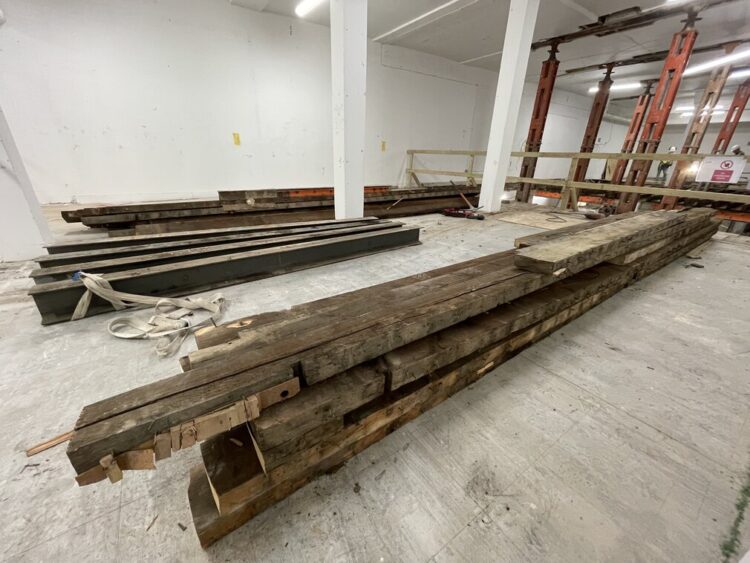Since Forcia’s inception, we have championed the circular economy across all projects; it’s part and parcel of our conservation mindset and commitment to retrofit. According to Wrap, the UK’s construction industry is responsible for a massive 100 million tonnes of waste per year – around a third of the country’s total waste. Clearly, this situation is not sustainable and needs to change urgently, and as contractors we have a key responsibility to lead by example and contribute to a greener future.
In practice, this means approaching schemes with longevity in mind from the outset, considering the scope to repurpose and recycle far beyond the lifespan of the building – think the next 100 years and beyond! Prioritising the circularity of materials and reuse in construction can not only tackle the huge waste problem and drive the net zero agenda, but also save costs and offset the volatile materials prices we have seen in recent years, not to mention the well-documented supply chain issues.
We need to review current processes and give innovative new ideas a chance. There are superb lessons from elsewhere, such as the Netherlands for instance, where a new model is emerging whereby fixtures and materials used in new projects are rented for the duration of their life. This is the kind of fresh thinking we need to embrace circular economy principles and make a real difference. Our own team is currently looking at the viability of tagging and tracking steel to increase transparency, a measure that could have significant industry-wide potential.
Much of what we do involves highly structurally complex retrofit, often requiring temporary works, which got us thinking about how to introduce more reclaimed steel into the temporary structures. Inherently recyclable, steel lends itself well to reuse and, so far, 75% of our temporary works comprise offcut or reclaimed steel. Our more challenging projects require demolition – many of these in busy Central London areas and extremely constrained and logistically difficult sites – so again we consider how to preserve what we can while we’re there, rather than rip out, throw away and deliver all new materials. That’s just wasted resources, transportation, time and potential. Not to mention our goal of safeguarding the heritage factor. When Forcia led on the strip-out and update of 21 Covent Garden, a Grade II listed property set within the historic piazza, works included lowering the existing basement and extensive below-ground alterations. We ended up carefully lifting all the original York stone paving and reusing it elsewhere.
There are various ways to remove the barriers to adopting more circular economy principles, such as by avoiding the production of composite materials that are harder to split up into their separate parts. Moreover, the responsibility and costs of recycling should be factored in from the earliest stages, adding an extra layer of responsibility and motivation to make better choices. When you purchase materials, you should be held accountable for dealing with the costs of eventually cleaning them up or redirecting them for further use at the end of a building’s life. It’s encouraging to see the UK’s new extended producer responsibility (EPR) legislation starting to make this more of a norm.
At Forcia, because we have the capability to undertake a wide range of works in-house, we effectively increase control of our supply chains, are better placed to integrate circularity into processes and, ultimately, can create our own circular economy. We want to influence the next generation, too. On one project, following deconstruction, we gave a large quantity of timber that couldn’t be reused for learning purposes in schools and colleges.
The industry needs more collaboration and knowledge sharing to cultivate greater understanding of the principles (and benefits!) of circularity and reuse. We need to eliminate short-termism and work together to leave a more positive environmental legacy.



